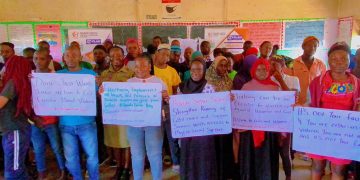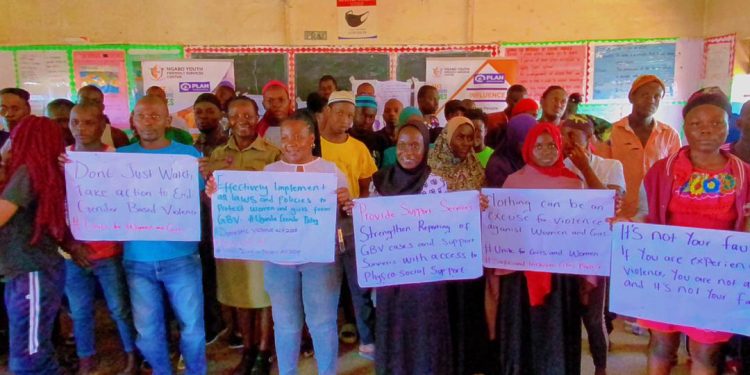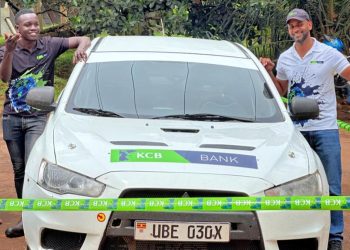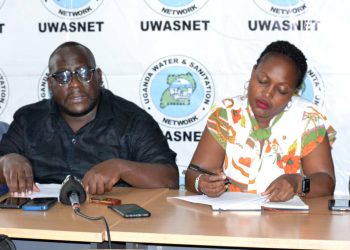Police in Kalerwe said that GBV cases in the community it serves have relatively reduced, attributing the reduction to community policing and sensitization campaigns by different stakeholders especially Non-government organizations.
Sgt Amiyat Jane, in charge of the child and family protection unit at Kalerwe police said that previously in a month, they used to register around 20 cases of GBV, but as of today, in a month, they are registering less than 7 cases.
Ms. Amiyat who was speaking during a community dialogue on GBV awareness held in Sebina Zone, Makerere III parish by Ngabo Youth Friendly Services Initiative in partnership with Plan International emphasized the need to increase more GBV sensitization campaign noting that one of the reasons that are driving GBV in communities is lack of awareness about prevention aspect.

She said that once communities are well informed about dangers of GBV, cases of GBV will continue to come down.
she further said that stopping Gender based violence against women is a holy fight against people without common sense. And its only to the sensible to stop it, not to look on.
“Men, too, also report cases, and we do handle them according.” She stated. She added that ” at least there is always one man who could report, Gender based violence doesn’t affect only women, even men are victims therefore I call up on men to be open, speak up and report cases, they should not suffer silently.’’ She said.
During her opening remarks, Ms. Masitula Nakandi, programs office at Ngabo Youth Friendly Services initiative , noted that ” this dialogue aimed at commemorating 16 days of activism against Gender based violence (GBV), and making communities aware about dangers of GBV, as well as consequence it causes to the country’s economy.”
She emphasized that GBV is not only beating a spouse but even the words people use against others.
She also reminded them about a number of laws and policies in place that address Gender based violence (GBV), including the Domestic Violence Act, Prohibition of female Genital Mutilation Act, and Children’s Act Amendment among other.
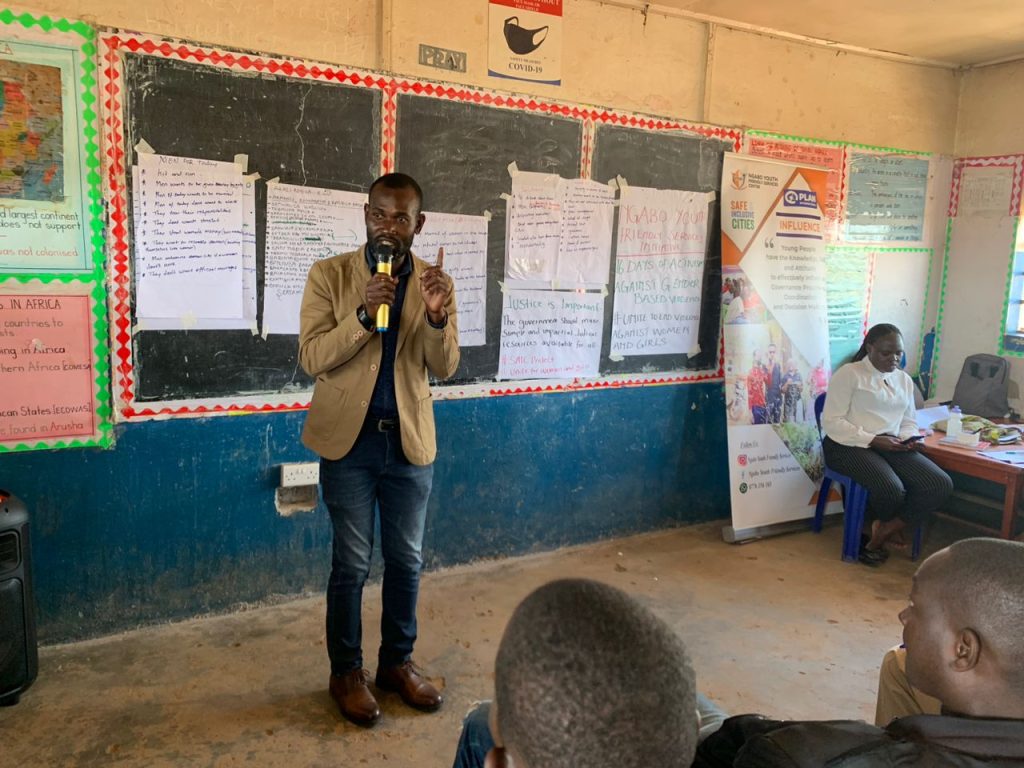
For his part, Sadat Zagah Zziwa, the executive director and founder, Ngabo Youth Friendly services initiative has commended Plan international for supporting initiatives that intended to reduce GBV in communities.
He urged young people who participated in the dialogue to desist from involving in acts of GBV to avoid falling culprits because authorities will deal with them.
It is estimated that GBV incidents cost the Uganda economy about UGX 77 billion annually (UNFPA case study)
The Impact of Ngabo and Plan international in Sebina Zone, Makerere III parish through community outreaches.
A one Nabatanzi Misa, youth leader, in Makerere III Parish, who is also a champions of change and SRHR facilitator and an advocacy team member at Ngabo youth Friendly service initiative said that “if at all we are to solve gender based violence issues. This starts from the ground level, and Ngabo has really worked so hard together with plan International to see that at least they close the gap between the local leaders and the people staying in the communities.
However, we still have a few gaps that are still existing, but what I can talk about the approaches that have been used to sensitize communities about GBV issues. One of them has been general cleanings competitions
This was introduced by Ngabo Youth Friendly services initiative in different parishes. These were competitions opened our eyes. She stated
She added that “We had so many cases whereby men used to beat up their wives. And the department of family department, at the police station in Kalerwe, they knew that the things were happening in this in the community, but there was no time to really look out for the culprits. So Ngabo helped us out, because it involved so many stakeholders at the division, the mayors, the town clerks, the police, and this has really helped to gap up some of the misconducts that were in our communities.”
She said that “because of these efforts, men have started taking responsibilities in their homes. We’ve seen them. They’ve come back into their homes. They’ve started taking care of their children. They’ve started giving them school fees. So this is really good.”
